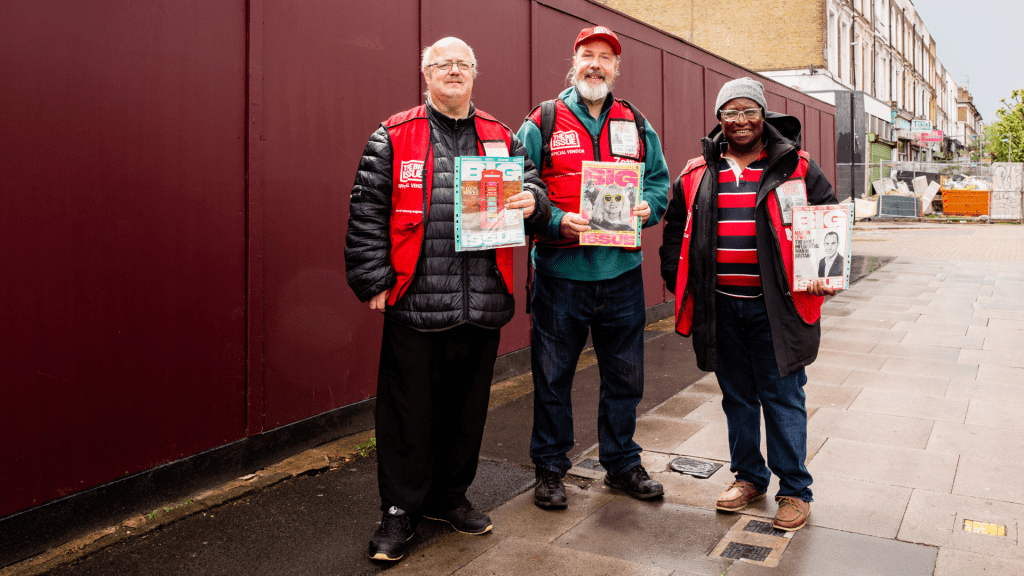2022-23 Priorities
Every year we identify areas where Big Issue vendors need more intensive support and work with funders and partners to address these through our Hand Up plus interventions.
In 2022-23 our Hand Up focusses are addressing both the legacy of the pandemic and the new challenges introduced by the cost of living crisis:
Switched On: Fighting Fuel Poverty
Like other low-income groups, Big Issue vendors and others with whom we work, have been hit hard by the rises in household utility costs. To prevent fuel crisis and increased poverty, we’re scaling up our energy advice nationally to ensure everyone supported by us has access to advice and guidance on managing household energy and suppliers and can access crisis support and grants if they need them. Every individual deserves to be able to keep themselves warm, be able to wash in warm water and be able to cook a warm meal.
Compass: accelerating access to mental health services
The COVID-19 pandemic has had a negative legacy on the mental health of those we support. This has been exacerbated by new stress caused by the cost-of-living crisis. To help tackle this we’re delivering Compass; a new, dedicated mental health support pathway to more rapidly identify both early and complex mental health needs across those we work with, and to facilitate access to the right care more quickly.
Connect: closing the digital gap for those in poverty
Building on the foundation of a successful Big Issue wide initiative to empower and equip vendors to operate cashless, and with support from Citi Foundation and other partners, we’re rolling out further digital skills coaching to increase the digital literacy of our vendors and ensure they’re able to take full advantage of the benefits of being online in accessing health care and other essential services and products, as well as managing money.
Pharovas O Traios (Changing Futures)
Around 50% of the individuals accessing our service are East European and Roma. This programme offers bespoke support for Roma vendors and increases understanding of the needs and culture of Roma citizens amongst local employers and business, and the voluntary and statutory services, to improve the accessibility of these organisations.
